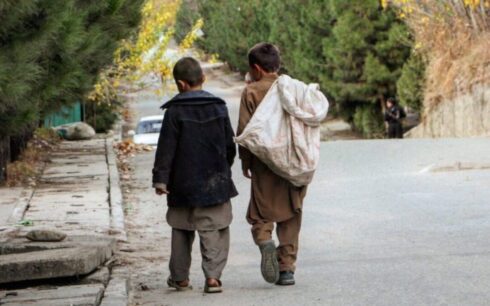The UK government has been accused of turning its back on the people of Afghanistan after an official watchdog said Britain has slashed aid to the country by more than half.
According to a report issued Wednesday by the Independent Commission for Aid Impact (ICAI), the UK is expected to provide £100 million in humanitarian assistance to Afghanistan in 2023-24, compared with £246 million in the previous year.
The ICAI noted the UK had been an “active and significant donor” to Afghanistan, promising £286 million in aid per year for 2021-22 and 2022-23.
However, the allocation for 2022-23 was later slashed to £246 million. ICAI said this resulted in programs for polio vaccinations and the clearance of landmines and improvised explosive devices being halted or delayed.
The watchdog also stated that successive cuts to the UK’s aid budget and the use of a substantial amount of it has been used on housing refugees in the UK.
Stakeholders interviewed for the report told ICAI that the repeated reductions to the UK’s aid budget and failures to fulfill pledges risks the UK’s reputation with its partners.
ICAI commissioner Sir Hugh Bayley, who led the report, said: “As the humanitarian situation continues to worsen in Afghanistan, and women and girls’ hard-won rights are being lost, we felt it was important to look again at how the UK is supporting the people of Afghanistan through the aid program.
“While the UK has played an important role in the international aid response since the Taliban takeover, our information note shows that the reduction in UK aid funding has led to programs that directly benefited Afghan people being stopped or postponed.
“It also highlights the lack of a UK diplomatic presence in Afghanistan which might undermine the effective management of the UK’s contribution to the international aid response.”
Stephanie Draper, chief executive at Bond, the UK network for NGOs, said: “The UK is turning its back on the people of Afghanistan, who are facing a worsening humanitarian crisis.
“Cuts to programs in the country mean the government has abandoned women and girls at a time when their rights are deteriorating.
“Reallocating such a huge proportion of UK aid to cover in-country refugee costs has meant the UK is less able to respond and allocate funding to humanitarian crises, which undermines the purpose of UK aid and puts our global credibility on UK aid at risk.
“The government must deliver on its commitment to the Afghan people by reversing cuts to programs in the country,” she said.
Labour’s shadow cabinet minister for international development, Preet Kaur Gill said: “This report paints a stark vision for the future for Afghanistan’s people, and Britain’s waning influence in the world.
“Today famine looms over the country, while millions of women are denied their basic rights.
“It is farcical and a betrayal of the Afghans who supported the allied mission that this government is cutting lifesaving support for them in order to prop up its failing asylum system.”
This comes as the humanitarian crisis in Afghanistan continues to deteriorate and funding needs are not being met and the watchdog reports there is little prospect for improvement.
The rights of women and girls are being eroded; United Nations funding appeals are not being met; there is not an agreed international approach; and there are differing views on whether the provision of international aid should be linked to Taliban reforms, ICAI stated.
The watchdog also noted that while the UK is still considered to be a “big player” in Afghanistan, many stakeholders think the UK is not sufficiently engaged with decision-makers in the country, reducing its ability to understand the operating context.
ICAI also stated that agencies delivering humanitarian aid in Afghanistan want the UK and other donors to play a stronger role engaging with the Taliban, to ensure a credible aid response.





